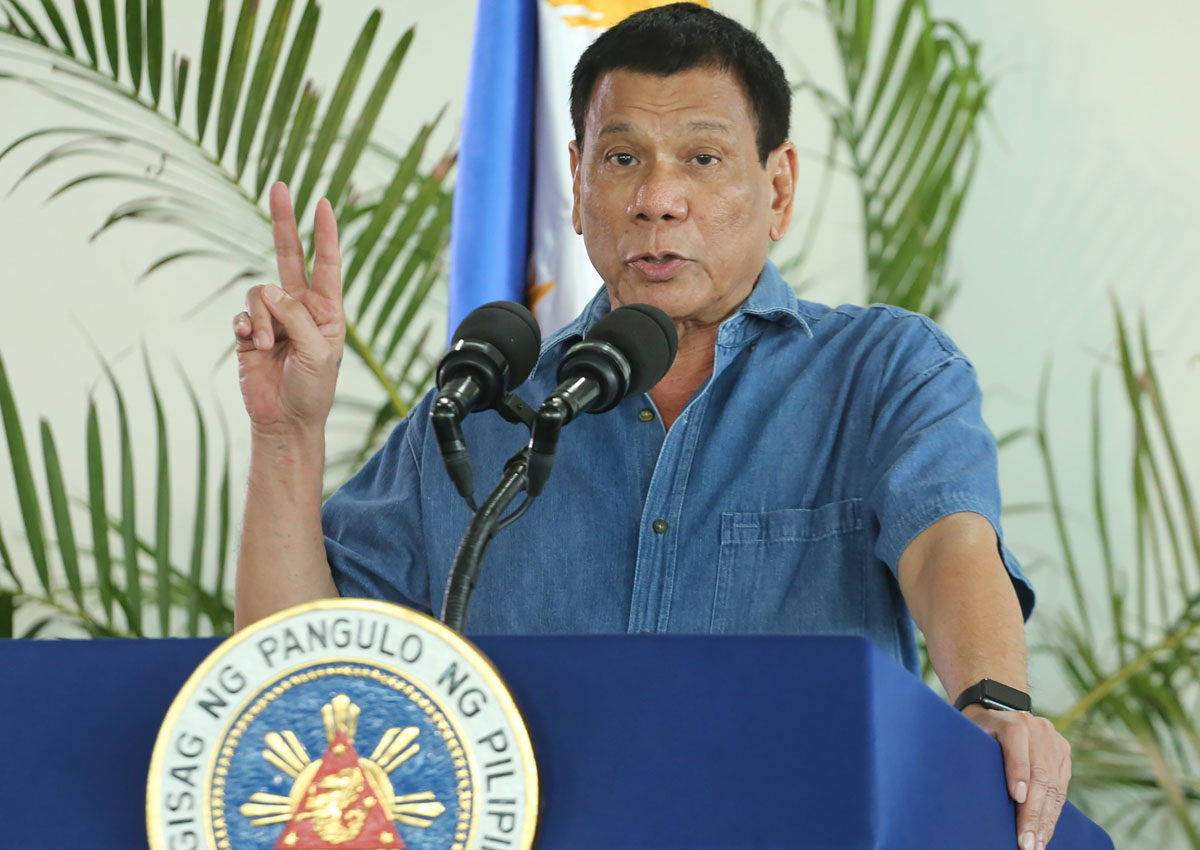BEIJING – For agreeing to return to the negotiating table to settle a dispute in the South China Sea, the Philippines is getting US$9 billion (S$12.6 billion) in soft loans from China, part of the US$13.5 billion in deals signed during President Duterte’s visit to Beijing this week.
Encouraged by the apparent success of his trip, Duterte announced his “separation” from the US on Thursday, declaring it had “lost,” and he had realigned with China.
Addressing a group of Chinese and Filipino businessmen after his talks with Chinese President Xi Jinping, Duterte said relations with the US had reached “checkmate.”
“The US has lost now,” Duterte said.
“I’ve realigned myself in your ideological flow and maybe I will also go to Russia to talk to (President Vladimir) Putin and tell him that there are three of us against the world-China, Philippines and Russia. It’s the only way,” he said.
“With that, in this venue, your honours, I announce my separation from the US, both in military, not in social, both in military (and) economics,” he remarked.
“I have separated from them. Hence, I will be dependent on you for all time. But do not worry. We will also help as you help us.”
He means it
Defence Secretary Delfin Lorenzana declined to comment, but National Security Adviser Hermogenes Esperon Jr. told reporters that Duterte meant what he said.
Manila and Washington are bound by the PH-US Mutual Defence Treaty in force since 1951.
Duterte cannot scrap the treaty on his own. Abrogation of the treaty requires action by the senate.
Xi and Duterte oversaw the signing of 13 agreements and memoranda of understanding after their talks at the Great Hall of the People in Beijing on Thursday.
The agreements included the establishment of the so-called Joint Coastal Guard Committee on Maritime Cooperation as a prelude to co-operation in the heavily disputed South China Sea.
“In this visit, bilateral relations have fully recovered, and the two countries will return to the track of dialogue and consultation to address maritime issues,” Chinese Vice Foreign Minister Liu Zhenmin told reporters after the signing of the agreements.
Liu said China welcomed the Philippines’ participation in its so-called Maritime Silk Road and committed to taking an active part in the development of infrastructure, agriculture and finance in the Philippines.
He said Xi agreed to lift travel advisories issued a few years ago to Chinese citizens travelling to the Philippines.
“This lift will encourage more Chinese citizens planning to visit the Philippines,” Liu said.
US$12.6 billion in soft loans
According to the Inquirer, during the talks, Xi committed US$6 billion in soft loans to the Philippines from the Chinese government, while another US$3 billion in credit facilities would be made available by private Chinese banks.
Xi also committed 100 million yuan (S$20.7 million), or about US$15 million, for building rehabilitation centres to aid Duterte’s brutal war on drugs. Finance Secretary Carlos Dominguez and Presidential Communications Secretary Martin Andanar confirmed this information.
Other deals signed were the Agricultural Cooperation Action Plan 2017-2019, co-operation on animal and plant inspection and quarantine, conduct of feasibility studies for major projects and production capacity and investment co-operation.
The two governments also agreed on establishing economic and technological co-operation; strengthening trade, investment and economic co-operation; preparing draft on economic co-operation and development plans and implementing a tourism plan for 2017-2022.
They also agreed to co-operate on transportation and infrastructure development and to financing co-operation between the Export-Import Bank of China and the Philippines’ Department of Finance.
Credit line
The two governments also agreed to share information and to co-operation between the Narcotics Control Bureau of the Ministry of Public Security of China and the Philippine Drug Enforcement Agency, another boost for Duterte’s war on drugs.
Bank of China will open on Friday a US$3-billion credit facility for Philippine industries and infrastructure, in a deal to be signed at the close of Duterte’s visit.
Businessmen from the Philippine companies described the deal as “nonbinding.”
“They want to give us a credit line for any use we may have for it,” one company official said. “It will most likely be (loaned out) at market rates,” he said.
Eight Philippine conglomerates and corporations will enter into an agreement with Bank of China for the credit facility.
They are JG Summit Holdings, Filinvest Development Corp., Metro Pacific Investment Corp., SM Investments Corp., International Container Services Inc., Ayala Corp., Pan Pacific Renewable Power Philippines Corp. and Udenna Corp.
The credit deal will be signed at the Bank of China headquarters in Beijing.
After overseeing the signing, Duterte will fly back to Davao City. He is expected to arrive there at 10:45 pm local time.
Liu said that after the talks between Xi and Duterte, China resumed giving permits to 27 Philippine companies exporting fruits, including mangoes, to the mainland.
He said China has also vowed to support the Philippines in its responsibilities as chair of the Association of Southeast Asian Nations for 2017.
Liu said the talks did not touch on Filipino fishermen’s return to Scarborough Shoal, or Panatag Shoal, which China had seized from the Philippines in 2012.
“However, they did talk about co-operation in fishery. They agreed that the two countries will strengthen fishery co-operation in the South China Sea and also co-operation in terms of fishery products (and) industries,” he said.




















































